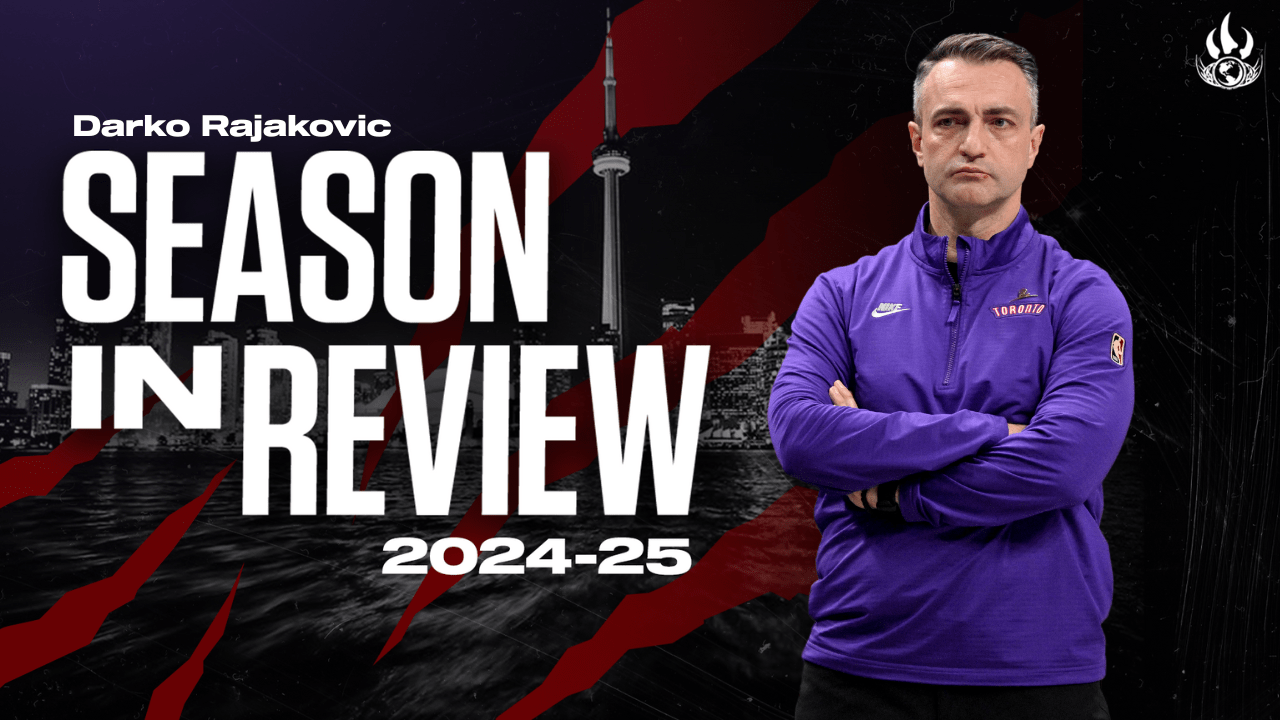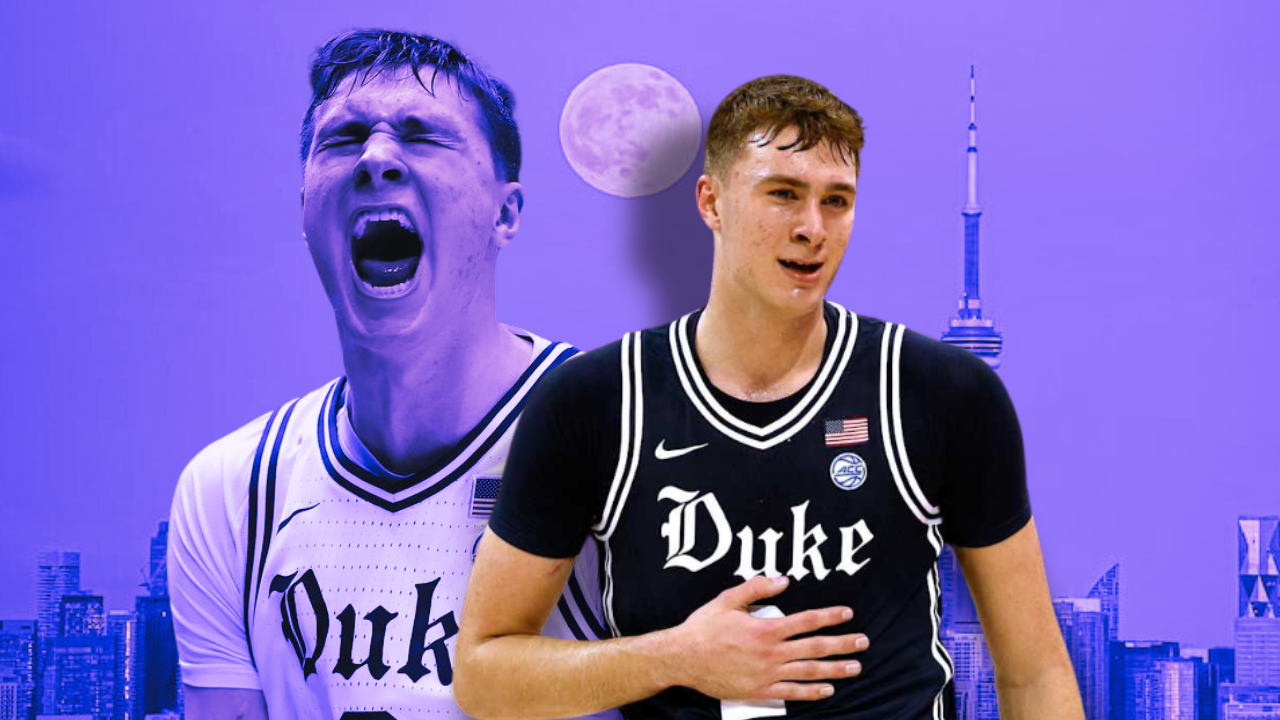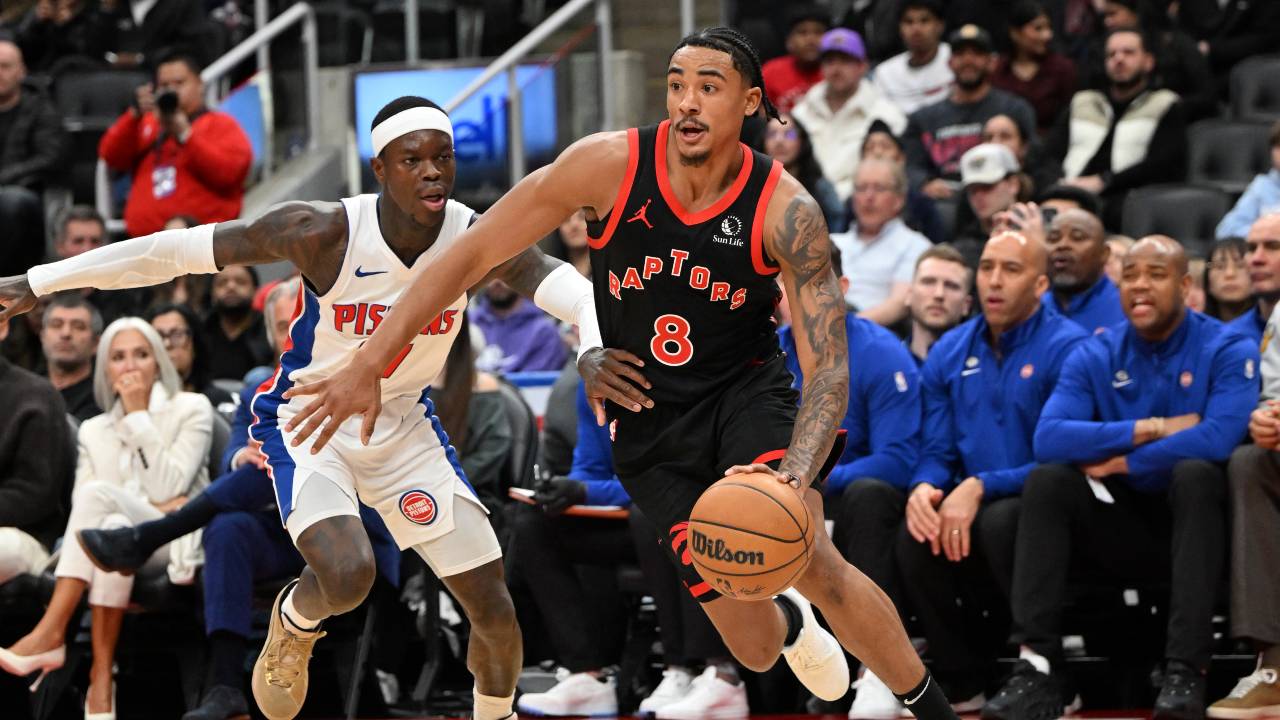The following is part of Raptors Republic’s series of pieces reviewing the season for the Toronto Raptors. You can find all the pieces in the series here.
What does success look like for a leader in a competitive environment in which the competitor is trying to lose? That’s an important animating question in discussing Darko Rajakovic’s 2024-25 season, but really his entire tenure as the head coach of the Toronto Raptors.
If ‘success’ were simply losing as many games as possible, then, heck, I could have done a ‘better’ job than Rajakovic. (To be clear, I would lost a lot of games as the coach, being grossly unprepared and unqualified for the job.) And clearly the Raptors weren’t as bad as they could be; they curbstomped teams like the Brooklyn Nets, Philadelphia 76ers, Charlotte Hornets, and Washington Wizards in the final weeks of the season, all of whom finished below Toronto in the standings.
So the Raptors were much, much better than the (few) teams worse than them and much, much worse than the (many) teams better than them.
Is that success?
Rajakovic opened the season on media day telling us that he was going to entirely change the team’s approach on that end. The team had the 26th-ranked defence in 2023-24, Rajakovic’s first, after building a defensive identity under Nick Nurse and even Dwane Casey before him. Even though Rajakovic instituted many of the statistical changes in his first season — fewer layups and fewer corner 3s for opponents — it didn’t make the defence any better.
So he opted for an overhaul in philosophy:
“We’re going to start to build our foundation starting now,” said Rajakovic when I asked him about his team’s defensive principles on media day. “We had a chance during the summer to talk to our players, to set some goals for them and we can all agree that great defence starts with how you play on the ball, how you start your defence from there. We want to apply more ball pressure, we want to be aggressive, we want to have active hands and everything starts there. There is one term around the league when you have a player around the rim who is protecting everybody, every player, is called MIG: Most Important Guy.
But I changed that with our team this year. For us, MIG, the most important guy, is going to be the guy who is guarding the ball. Everything starts there.”
For much of the season, it didn’t work. At all. It benefited Davion Mitchell, and virtually no one else, as the team asked Jakob Poeltl to play higher in the pick and roll than he probably should have, and didn’t have anyone else to clean up messes when blow-bys inevitably occurred. Then the team traded Mitchell, and right when the wheels should have fallen off the defence entirely, the thing started clicking. (Which, of course, coincided with Toronto’s schedule becoming much easier.)
RJ Barrett and Immanuel Quickley started defending much more solidly, fitting into a system that was capably defending opponents, night in and night out. Poeltl played lower, and he was very comfortable protecting the paint and closing off the cracks that inevitably opened. The rookies jumped into bigger roles and defended like madmen.
And Scottie Barnes back-ended it all. He was, more or less, perfect on the defensive end. Fulfilling every role, cleaning up everyone else’s mistakes, and bringing passion and focus on every possession, when Toronto’s (desired) slide down the standings giving Barnes every reason to not care on every defensive possession.
The Raptors defence jumped to second-best in the league after the All-Star break and settled at 15th on the season. With four rookies in the rotation, a number of negative or at least not-positive defenders in the rotation, and injuries disrupting any flow the team might create throughout the season. How much of that is due to Rajakovic and his new system? Surely to some extent. The lion’s share of course goes to Barnes. But Rajakovic fostered buy-in to a new system, saw his players care and try over a long stretch of season when they had every reason not to, and saw real success in the numbers. That’s as much as you can ask for from a coach.
Offensively, the Raptors continued the system that was implemented in 2023-24. Oodles of passing (sixth-most in the league), very few isolations (fewest in the league) or handler-finished pick and rolls (fourth-fewest), the Raptors relied heavily on cuts (third-most), handoffs (eighth-most), and continual actions. With virtually no dribbling, self-creation, or pull-up shooting consistently available on the roster, the Raptors turned to more delay offence than any other team in the league. Poeltl’s choices in toggling between sets was immaculate, giving Toronto a much higher expected efficiency (in terms of shot type, location, and openness) than it had any right possessing on the year.
If — and this is a real if — the system remains intact with (hopefully) Quickley, Barnes, and Brandon Ingram consistently healthy next season, Toronto’s offence could be a real menace. If the quality of shots remains so high, and the quality of shooters skyrockets with those players in the lineup more frequently, the Raptors could see their offence jump to above league-average.
That is all theoretical, of course. As it is, Toronto finished 26th in offence after finishing 24th the year prior. Is that success for Rajakovic? I can yap til the cows come home about the amazing process of Toronto’s offence, but it would of course be better for good process to actually turn into good scoring. Next season, it will have to. But in the same way that Toronto’s defensive success means more to the players than the coaching staff, so too is the offensive failure likely more a reflection of Toronto’s talent limitations than any mistakes the coaches made. The players play the game. Not the coaches.
Those are all system-based analyses. When it comes to players, almost everybody has improved. The rookies have all been fantastic. Gradey Dick came out of the gate on fire. Ochai Agbaji went from almost out of the league to a hugely impactful small-role player. Poeltl turned in the best season of his career. Raptors Republic will have season-in-review pieces for everyone in coming weeks, so I’m not going too deep on everyone. But development up and down the roster was stellar, with a few exceptions (coming in a moment).
That’s not to say everything was perfect. Rajakovic made some real game-management mistakes, such as in an Oct. 28 game against the Denver Nuggets when Rajakovic opted not to call a timeout late — but in which his team failed to find a good look on a chance to win. At other times, the Raptors ran sluggish isolations late and got terrible looks in close games. (Although whether Rajakovic actually called those plays or Barnes simply chose to isolate is something we can’t know.) Toronto had the second-worst clutch net rating in the league.
Perhaps most importantly, some of the only players who did not improve were Toronto’s best and most important players. On the season, Barnes turned more usage into lesser production. It was an experiment, by Barnes’ own admission, to discover what works and what doesn’t with the ball in his hands. The Raptors, like Thomas Edison before them, found 10000 ways to not make a lightbulb. The hope has to be that it all falls into place next year when experimentation ends. Similarly, Quickley also had a poor year by his standards. But he was injured for much of the season, and he was turning a corner towards the end of the year. As with Barnes, it is clear how Quickley can succeed going forward.
But many of the most common criticisms of Rajakovic are, to my mind, wrong. Rajakovic has innovated as the coach on both ends, and Toronto is a very modern team, in terms of offensive and defensive systems. Neither is Rajakovic soft and too friendly with players; Ja’Kobe Walter told assembled media in exit interviews that Rajakovic tore into him during a game, prompting much stiffer play from the rookie. Just because Rajakovic is kind doesn’t mean he doesn’t coach players. He does.
And those mistakes of his — some in-game play-calling mistakes, perhaps rotation quibbles, maybe clutch offensive stagnation — will matter far more next season. But in this one, they were part of the learning curve.
When you tally the ledgers, there is far, far more in the pro column for Rajakovic than the con column. Anyone can lose games. But Rajakovic did it while instilling impressive systems on both ends, fostering development up and down the roster, engendering buy-in from his stars and role players alike, and laying the foundation for when games count. That is meaningful. That is success.



